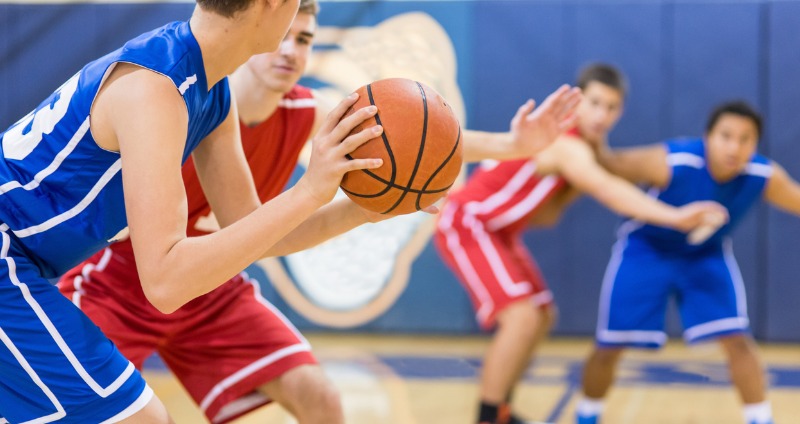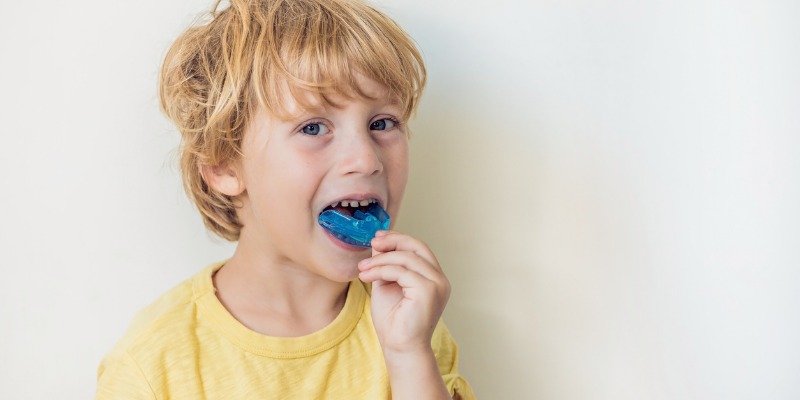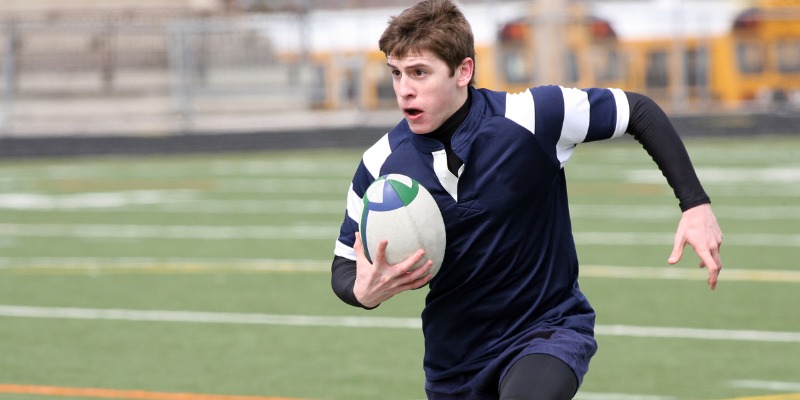
Should you wear a mouthguard if you have braces? Yes, if you're playing a sport that requires a mouthguard normally, then you should also wear a mouthguard for that sport when you have braces.
Teeth and jaw injuries are common in contact sports. Your braces might actually provide some extra protection to your teeth, but with braces there’s an added risk of hurting your lips and the inside of your cheeks. We recommend wearing a properly-fitted mouth guard for any sport where there is a risk of an impact to your mouth or face.
How to Choose your Mouthguard
There are two common types of mouthguards available – custom-fitted where a dentist or orthodontist makes a mould of the teeth for the mouthguard or ‘boil and bite’ mouthguards where the patient moulds the plastic by placing it in their mouth after heating.
Both types of mouthguards have their pros and cons. When a patient is wearing braces, there a few additional things to consider.
Using a Boil and Bite Mouthguard with Braces
A boil and bite mouthguard for braces is a good option for people with braces. Available at a sports store or chemist, the mouthguard is heated then placed in your mouth to mould to your teeth.
As your teeth move due to your braces, the mouthguard may become loose or uncomfortable over time so you should remould it to fit your teeth. Reheat the mouthguard according to the instructions and bite the mouthguard to mould it to your teeth’s current position.
Make sure you choose a mouthguard designed for braces because they have more room to protect the teeth, braces and gums. A standard boil and bite mouthguard doesn’t have enough room to accommodate the brackets and wire and don’t offer enough protection. Some cheaper mouthguards are only suitable for one-time moulding and need to discarded once they don’t fit.

Using Custom-Fitted Mouthguards With Braces
Moulding your mouthguard for a custom fit involves a quick visit to your orthodontist or dentist. They will make the mouthguard from an impression of your teeth. Braces move teeth so a custom mouthguard may not be the best option as it can’t be remoulded.
When the mouthguard no longer fits, a new impression is needed before the next mouthguard can be made. Visiting the dentist for a new custom mouthguard multiple times in the season may not be feasible but if you require a custom mouthguard, speak to your orthodontist or dentist.
Mouthguards for High Risk Sports
There are many sports that have a risk of mouth and teeth injuries but some sports have a greater risk than others.
Three sports that have a poor record for tooth loss, chipped teeth and broken jaws are hockey, rugby and football. It’s not at the elite level either. Accidents can happen at any age so players as young as six are encouraged to wear a mouthguard when they play or train. It’s a good idea to get young players into the habit of wearing a mouthguard so it becomes second nature to put it in. Remember that any sport where a ball is being thrown or moved around increases the risk of a knock to your teeth.
Hockey is one sport that no one, with or without braces, should play without a mouthguard. There is the risk of being injured by another player but there is the additional risk from the hard ball and that every player on the field is carrying a graphite stick. A hockey stick or ball injury can cause major facial injury.
Rugby is a high contact sport that carries a high risk of injury to the face and teeth. A mouthguard should always be worn.

Football, whether it’s AFL or soccer, can cause injuries anywhere on the field so always wear a mouthguard.
A basketball doesn‘t cause as many injuries as other types of balls but there are plenty of players’ elbows, shoulders and heads that can damage braces and teeth. Always play basketball with a suitable mouthguard for braces.
Remember teeth aren’t only at risk while playing organised sport. Rough play with siblings or playing on the school playground equipment is all it can take for a permanent tooth injury. Try to think about whether the play can cause a facial injury and change the game. We only get one set of adult teeth and once a tooth is knocked out, it can’t go back in. You then spend the rest of your life with an implant or gap.
Sport Insurance
A part of the sporting fees players pay each season covers insurance in case of injury while training or playing. Some sporting codes may not cover injuries unless the player is wearing a custom-fit mouthguard. To ensure you're eligible for any claim, ask your club if the insurer requires a particular type of mouthguard.
Mouthguards and Health Insurance
Many health insurance funds cover the full cost of mouthguards. A lost or damaged tooth can cost thousands in dental fees so a mouthguard is a cost-effective prevention plan.
Some sporting clubs have an alliance with a dentist or mouthguard supplier to provide players with mouthguards that don’t exceed health funds’ mouthguard rebates. For those players without health insurance, the supplier offers custom mouthguards for a nominal fee.
Mouthguards after Braces
Once your braces are off, throw out any mouthguards you had while wearing braces because they won’t fit. Now that your teeth are in position, you need to do everything possible to keep them in position and protect them. If you don’t have a permanent retainer fitted, you will use a removable retainer full-time then nightly. Wearing your retainer as instructed by your orthodontist will ensure you keep your smile looking good for life.
Don’t make the mistake of thinking your retainer doubles as a mouthguard that can protect your teeth while playing sport. They make retainers from thin plastic so they’re comfortable for wearing all day and/or night. Retainers aren’t designed to handle the shock of a hit from a ball or another player and won’t offer your teeth any protection.
Wear a mouthguard whenever you are training or playing sport. Now that your teeth are in a position they should stay for the rest of your life, it is worth investing in a custom mouthguard to ensure they have the best possible protection. This mouthguard should last a year so keep it in a safe place and clean it regularly. Don’t chew on any mouthguard as this may damage it. A new mouthguard each year offers the best protection for your teeth as they can wear down with regular use.
If you have any queries about the best type of mouthguard to use while you are wearing braces, ask your orthodontist.
To make a no-obligation appointment, you can contact The Orthodontists by calling (08) 9364 8020 or book an appointment online.